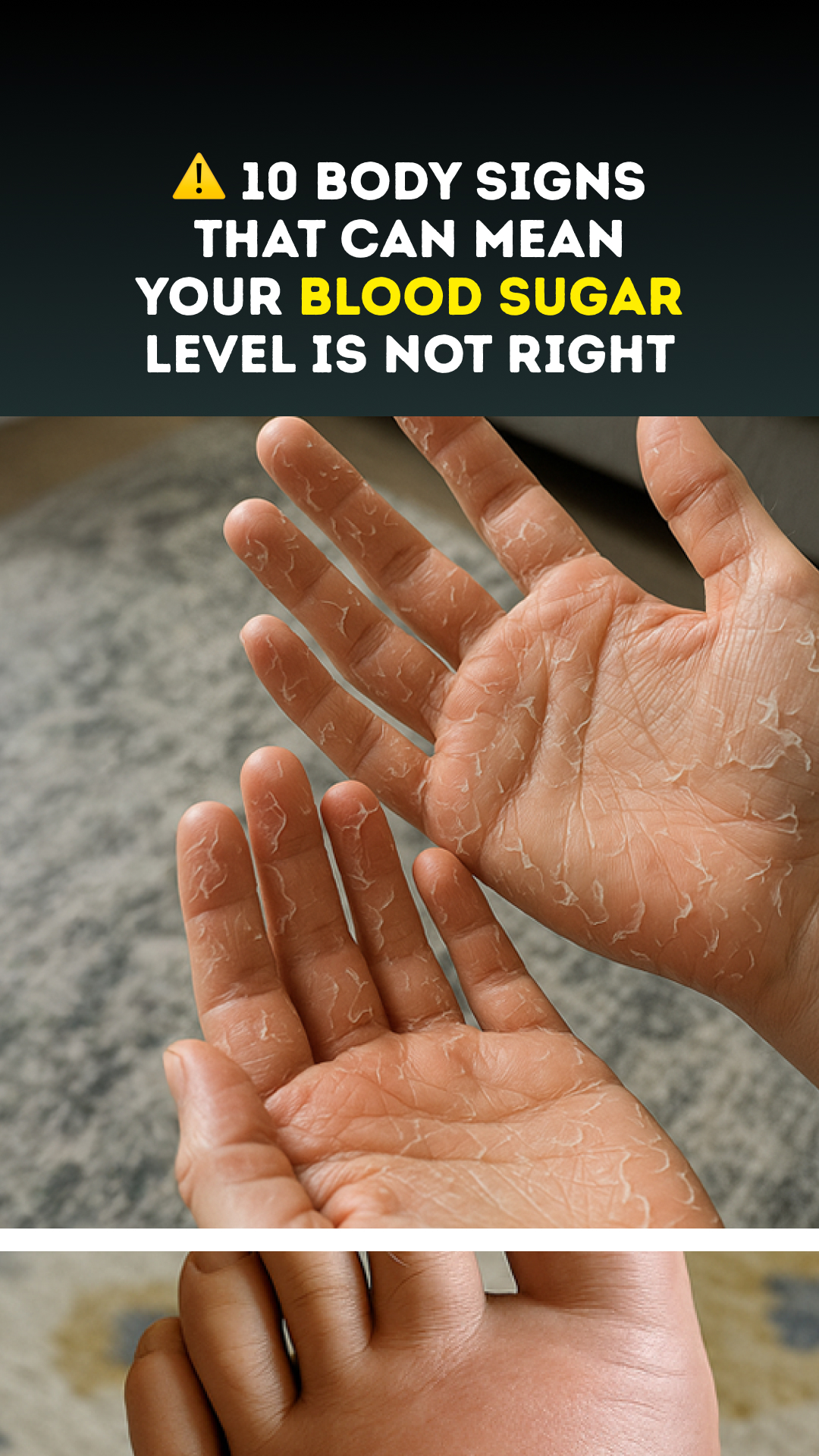10 Body Signs That Can Mean Your Blood Sugar Level Is Not Right
Even if you don’t have diabetes, monitoring your blood sugar is important, as imbalances can affect your long-term health. Here are some common signs that your blood sugar may be too high or too low:
– High blood sugar and pressure can damage the kidneys, causing fluid buildup and swelling in your hands or feet., Constant Thirst & Frequent Urination – Excess sugar in your blood pulls fluid from tissues, making you thirsty and causing frequent trips to the bathroom., Fatigue – When your cells don’t get enough glucose for energy, you may feel tired or exhausted.
Dizziness – Low blood sugar (hypoglycemia) can cause dizziness, especially if you skip meals, eat too late, or drink alcohol on an empty stomach., Unexplained Weight Loss – If your body can’t use glucose properly, it burns fat and muscle for energy, causing weight loss even if you eat more., Numbness or Tingling – A sign of nerve damage linked to diabetes.

Dry or Itchy Skin – Skin changes like dryness, blisters, or infections may indicate high blood sugar., Slow Healing Wounds – Poor circulation from diabetes slows the healing of cuts and increases infection risk., Blurred Vision & Headaches – High blood sugar or pressure can harm your eyes, affecting your vision and causing headaches., Frequent Infections – High blood sugar weakens your immune system, increasing the risk of gum disease, UTIs, and yeast or skin infections.

If you notice any of these signs, consult your doctor. Managing Type 2 diabetes includes regular testing, medication, a balanced diet, and exercise. Stay informed, take care of your health, and act early to prevent complications.

Note: This content is for informational purposes only. Always seek advice from a medical professional regarding health concerns.






